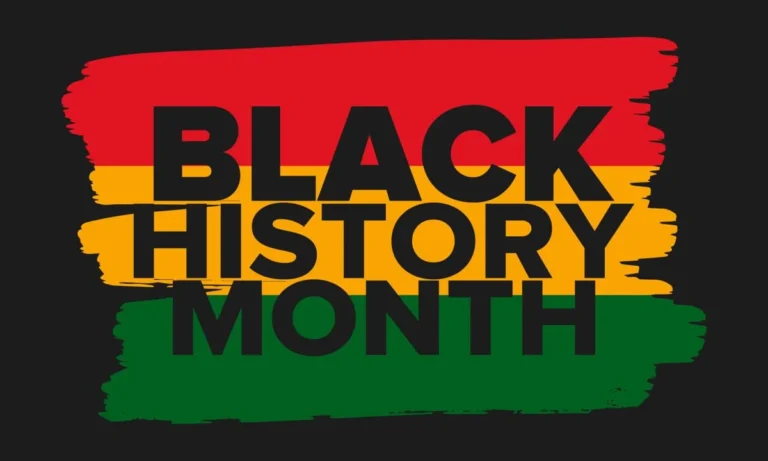Black history is not just a chapter in the past; it is an ongoing story. Today, we invite you to explore the rich and complex history of black history through engaging trivia questions and answers.
From people who defied the odds in the fight for civil rights to pioneers who shattered ceilings in science and the arts, these questions cover a diverse range of topics.
So, get ready to test your knowledge, expand your understanding, and perhaps even discover something new about yourself and the rich legacy of black history.
Table of contents
- Black History Trivia Questions and Answers
- Black History Trivia Questions and answers on the Civil Rights Movement
- Black History Month Trivia Questions and Answers
- 20 Black History Trivia Questions on Black American Music
- Black History Trivia on Enslavement and Abolition
- Black History Trivia Questions and Answers About Black Americans on the Big Screen
- Black History Trivia on Science and Discovery
- Conclusion
- References
- Recommendation
Black History Trivia Questions and Answers
Who was the first African American Supreme Court Justice?
Answer: Thurgood Marshall
Who is often called the “Father of Black History”?
Answer: Carter G. Woodson
Which African American woman refused to give up her seat on a segregated bus in Montgomery, Alabama, in 1955?
Answer: Rosa Parks
Who was the first African American to win an Academy Award for Best Actor?
Answer: Sidney Poitier
What was the name of the speech delivered by Martin Luther King Jr. during the March on Washington for Jobs and Freedom in 1963?
Answer: “I Have a Dream”
Who was the first African American to serve as President of the United States?
Answer: Barack Obama
Who was the first African American woman to win the Nobel Prize in Literature?
Answer: Toni Morrison
What was the name of the organization founded by Malcolm X in 1964?
Answer: Organization of Afro-American Unity (OAAU)
Who was the first African American woman to serve as Secretary of State?
Answer: Condoleezza Rice
What was the name of the landmark Supreme Court case that declared segregation in public schools unconstitutional?
Answer: Brown v. Board of Education
Who was the first African American to win a Pulitzer Prize?
Answer: Gwendolyn Brooks
Which African American scientist is famous for his work with peanuts?
Answer: George Washington Carver
Who was the first African American to win an Olympic gold medal?
Answer: Jesse Owens
What was the name of the African American baseball player who broke the color barrier in Major League Baseball?
Answer: Jackie Robinson
Who was the first African American to serve as U.S. Secretary of Defense?
Answer: Colin Powell
Who was the first African American woman to win an individual Olympic gold medal?
Answer: Alice Coachman
Who was the first African American to serve as U.S. Secretary of State?
Answer: Colin Powell
Who was the first African American woman to win an Academy Award for Best Actress?
Answer: Halle Berry
What was the name of the African American woman who helped guide slaves to freedom via the Underground Railroad?
Answer: Harriet Tubman
Who was the first African American woman to win the Pulitzer Prize for Poetry?
Answer: Rita Dove
Black History Trivia Questions and answers on the Civil Rights Movement
What year did Rosa Parks refuse to give up her seat on a bus, sparking the Montgomery Bus Boycott?
Answer: 1955
Who delivered the iconic “I Have a Dream” speech at the March on Washington for Jobs and Freedom?
Answer: Martin Luther King Jr.
What landmark Supreme Court case declared segregation in public schools unconstitutional?
Answer: Brown v. Board of Education (1954)
What peaceful protest tactic involved sitting at lunch counters to challenge segregation in restaurants?
Answer: Sit-ins
What organization played a central role in coordinating and mobilizing the Civil Rights Movement?
Answer: Southern Christian Leadership Conference (SCLC)
Who led the Freedom Rides, challenging segregation on interstate buses?
Answer: James Farmer and the Congress of Racial Equality (CORE)
What was the significance of the Selma to Montgomery marches?
Answer: Highlighted voting rights discrimination and led to the passage of the Voting Rights Act of 1965.
Who was the prominent leader of the Student Nonviolent Coordinating Committee (SNCC)?
Answer: John Lewis
What was the impact of the Greensboro sit-in movement?
Answer: Inspired similar protests nationwide and helped build momentum for desegregation.
What is the significance of the Birmingham campaign?
Answer: Drew national attention to police brutality against peaceful protesters and led to business boycotts.
What role did women play in the Civil Rights Movement?
Answer: Many women played crucial roles, such as Rosa Parks, Dorothy Height, and Fannie Lou Hamer.
What were the Freedom Summer projects and their impact?
Answer: Registered Black voters in the South, faced violence and intimidation, but increased Black political participation.
How did the Black Power Movement differ from the Civil Rights Movement?
Answer: While both sought racial equality, the Black Power Movement emphasized self-determination and cultural identity.
What is the significance of the Voting Rights Act of 1965?
Answer: Removed discriminatory voting practices and significantly increased Black voter registration and turnout.
How did the Civil Rights Movement contribute to broader social justice movements?
Answer: Inspired movements for LGBTQ+ rights, women’s rights, and disability rights.
What was the role of the media in the Civil Rights Movement?
Answer: Both documented the movement and contributed to public awareness, but also sometimes misrepresented events.
How did the Civil Rights Movement impact race relations in the United States?
Answer: While significant progress has been made, systemic racism persists, and work towards racial equality continues.
What can we learn from the Civil Rights Movement today?
Answer: The importance of nonviolent resistance, organizing, and collective action in pursuing social justice.
How can we honor the legacy of the Civil Rights Movement?
Answer: By continuing to work for racial equality, voting, and supporting organizations fighting for justice.
What are some resources to learn more about the Civil Rights Movement?
Answer: National Museum of African American History and Culture, The Civil Rights Movement Archive, documentaries, and historical texts.
Black History Month Trivia Questions and Answers
What year did slavery officially end in the United States?
Answer: 1865 (13th Amendment)
Who was the first African American woman to earn a Ph.D. in Mathematics?
Answer: Dr. Evelyn Boyd Granville
Who was the first African American to win the Nobel Prize in Literature?
Answer: Toni Morrison
What year was Martin Luther King Jr.’s “I Have a Dream” speech delivered?
Answer: 1963
What city is known as the birthplace of Hip Hop?
Answer: The Bronx, New York City
Who was the first African American woman to fly in space?
Answer: Dr. Mae Jemison
What organization was founded in 1909 to fight for the rights of African Americans?
Answer: National Association for the Advancement of Colored People (NAACP)
What is the name of the iconic statue commemorating the abolition of slavery in the United States?
Answer: The Statue of Liberty
What year did Rosa Parks refuse to give up her seat on a bus in Montgomery, Alabama, sparking the Montgomery Bus Boycott?
Answer: 1955
What was the name of the legal system that discriminated against African Americans in the Southern United States after the Civil War?
Answer: Jim Crow Laws
Who was the leader of the Nation of Islam, a controversial but influential organization that advocated for Black separatism and self-sufficiency?
Answer: Malcolm X
What was the name of the movement that aimed to achieve racial equality through nonviolent resistance, led by figures like Martin Luther King Jr. and Rosa Parks?
Answer: Civil Rights Movement
Who was the first African American woman to win an Olympic gold medal?
Answer: Wilma Rudolph (1960)
What was the name of the landmark Supreme Court case that declared segregation in public schools unconstitutional?
Answer: Brown v. Board of Education (1954)
Who was the first African American woman to become a Supreme Court Justice?
Answer: Thurgood Marshall
What important role did Harriet Tubman play during the Civil War?
Answer: Conductor on the Underground Railroad, helping enslaved people escape to freedom
What is the name of the annual month-long celebration honoring the achievements and history of African Americans?
Answer: Black History Month
Who was the first African American woman to win a Pulitzer Prize?
Answer: Gwendolyn Brooks (1969)
What was the name of the movement that advocated for Black pride and cultural identity, popularized in the 1960s and 70s?
Answer: Black Power Movement
What was the name of the brutal system of forced labor used in the Americas, primarily to cultivate crops like cotton and tobacco?
Answer: Transatlantic Slave Trade
Who was the first African American woman to win a Grammy Award for Album of the Year?
Answer: Lauryn Hill (1999)
What was the name of the historical event known as the “Tulsa Race Massacre,” where a predominantly Black neighborhood in Tulsa, Oklahoma was attacked and destroyed by a white mob?
Answer: Tulsa Race Massacre (1921)
Who was the first African American woman to become a Rhodes Scholar?
Answer: Wilma Pearl McDaniel (1947)
What was the name of the important legislation that established voting rights protections for African Americans?
Answer: Voting Rights Act of 1965
What was the name of the historic 1963 march on Washington, where Martin Luther King Jr. delivered his iconic “I Have a Dream” speech?
Answer: March on Washington for Jobs and Freedom
Who was the first African American woman to become a major studio film director?
Answer: Ava DuVernay
What was the name of the influential 19th-century abolitionist newspaper edited by Frederick Douglass?
Answer: The North Star
Who was the first African American woman to win a Miss America title?
Answer: Vanessa Williams (1984)
What was the name of the important 1957 case where nine Black students integrated an all-white high school in Little Rock, Arkansas?
Answer: Cooper v. Aaron
20 Black History Trivia Questions on Black American Music
What genre of music features call-and-response vocals and improvisation, often accompanied by blues guitar?
Answer: Blues
What iconic singer, known as the “Queen of Soul,” had hits like “Respect” and “Think”?
Answer: Aretha Franklin
Who is considered the “Godfather of Soul” and known for songs like “Get Up (I Feel Like Being a) Sex Machine” and “Cold Sweat”?
Answer: James Brown
What instrument is central to jazz music, known for its improvisation and syncopation?
Answer: Saxophone
What popular music competition show, created by Bob Jones in 1971, showcased Black talent and gave platforms to artists like Michael Jackson and The Supremes?
Answer: Soul Train
Who was the “Empress of the Blues,” known for her powerful vocals and songs like “St. Louis Blues” and “Empty Bed Blues”?
Answer: Bessie Smith
What band, led by Miles Davis, pioneered modal jazz and experimented with improvisation and electronic music?
Answer: The Miles Davis Quintet (Second Great Quintet)
What popular hip-hop group, formed in Compton, California, released influential albums like “Straight Outta Compton” and “N.W.A and the Posse”?
Answer: N.W.A
Which singer-songwriter used soul, funk, and rock influences to create his unique sound, with hits like “What’s Going On” and “Sexual Healing”?
Answer: Marvin Gaye
What iconic reggae musician, known for his Rastafarian beliefs and socially conscious lyrics, had hits like “Get Up, Stand Up” and “Redemption Song”?
Answer: Bob Marley
Who was the first Black American singer to win a Grammy Award for Album of the Year, and for what album?
Answer: Stevie Wonder (“Innervisions,” 1973)
What is the name of the iconic Motown record label, founded by Berry Gordy, that launched the careers of many Black artists?
Answer: Motown Records
What music genre emerged in the 1970s, combining elements of funk, disco, and electronic music, and featured artists like Donna Summer and Parliament-Funkadelic?
Answer: Disco
What groundbreaking hip-hop group from Long Island, New York, influenced countless artists with their conscious lyrics and social commentary, with albums like “It Takes a Nation of Millions to Hold Us Back” and “Fear of a Black Planet”?
Answer: Public Enemy
What influential female rapper, known for her outspoken lyrics and feminist themes, gained recognition with albums like “The Miseducation of Lauryn Hill” and “The Miseducation of Lauryn Hill”
Answer: Lauryn Hill
What role did Black gospel music play in the Civil Rights Movement?
Answer: Provided inspiration, community, and a platform for expression.
How did Black music influence other genres and mainstream music culture?
Answer: Heavily influenced rock, pop, hip-hop, and other genres, shaping the sound of modern music.
What are some contemporary Black artists carrying on the legacy of past generations?
Answer: Beyoncé, Kendrick Lamar, Solange, Lizzo, etc. (Answers can vary)
How can we celebrate and support Black music?
Answer: Listen to Black artists, attend concerts, purchase music, and support artist-run initiatives.
What are some resources to learn more about Black American music history?
Answer: Smithsonian National Museum of African American History and Culture, Rock & Roll Hall of Fame, documentaries, and biographies.
Black History Trivia on Enslavement and Abolition
In what year did the Transatlantic Slave Trade officially end?
Answer: 1807 (British Empire), 1865 (United States)
What was the name of the network that helped enslaved people escape to freedom in the North?
Answer: The Underground Railroad
Who was the famous abolitionist who published the anti-slavery newspaper “The North Star”?
Answer: Frederick Douglass
What key document ended slavery in the United States?
Answer: The 13th Amendment (1865)
What was the name of the violent rebellion led by Nat Turner in 1831?
Answer: Nat Turner’s Rebellion
What was the Middle Passage, and what were its horrific conditions for enslaved people?
Answer: The forced journey across the Atlantic Ocean, was characterized by overcrowding, disease, and brutality.
What role did Harriet Tubman play in the Underground Railroad?
Answer: Conductor, helping hundreds of enslaved people escape freedom.
What was the significance of the Missouri Compromise and the Compromise of 1850?
Answer: Political attempts to maintain a balance between slave and free states, ultimately contributed to tensions.
What was the Dred Scott case and its impact on the abolitionist movement?
Answer: Supreme Court decision denying citizenship to Black people, further polarizing the nation.
What was the purpose of John Brown’s raid on Harpers Ferry, and what was its outcome?
Answer: Aimed to spark a slave rebellion, but failed and Brown was executed, becoming a martyr for abolitionists.
What were the different perspectives on abolition within the free states?
Answer: Some supported immediate emancipation, while others favored gradualism or colonization.
How did enslaved people resist their oppression?
Answer: Through various means, including work slowdowns, escapes, rebellions, and cultural expressions.
What role did international pressure play in ending the slave trade?
Answer: Pressure from countries like Britain contributed to the abolition of trade in their empires.
What were the long-term consequences of slavery on African American communities and the United States?
Answer: Systemic racism, economic and social disparities, cultural resilience, and ongoing struggles for equality.
How does understanding this history inform our present conversations about race and justice?
Answer: Essential to acknowledge the past, recognize its continuing impact, and work towards a more equitable future.
What are some important historical sites related to slavery and abolition that can be visited today?
Answer: Whitney Plantation, National Underground Railroad Network to Freedom, National Museum of African American History and Culture.
How can we honor the legacy of those who fought against slavery and continue the fight for racial justice?
Answer: Educate ourselves, support organizations working for equality, advocate for policy changes, and practice anti-racism in our daily lives.
What are some resources for further learning about slavery and abolition?
Answer: Books like “Beloved” by Toni Morrison, documentaries like “13th,” museums, and historical archives.
How can we ensure that these historical injustices are not forgotten, and the lessons learned are applied to present-day issues?
Answer: Keep sharing knowledge, engage in meaningful discussions, and act towards building a more just and equitable society.
What are some current movements working towards racial justice that we can support?
Answer: Black Lives Matter, Movement for Black Lives, organizations advocating for voting rights, educational equity, and criminal justice reform.
Black History Trivia Questions and Answers About Black Americans on the Big Screen
What 1977 film, directed by George Lucas, featured the first Black hero in a major science fiction film?
Answer: Star Wars (featuring Billy Dee Williams as Lando Calrissian)
Who became the first Black woman to win an Academy Award for Best Actress for her role in a 1939 film?
Answer: Hattie McDaniel for “Gone with the Wind” (though the portrayal and context are subject to important conversations)
What 1982 film, directed by Steven Spielberg, depicted the real-life story of an enslaved family’s fight for freedom?
Answer: Beloved
Which iconic actress starred in the 1991 film “Thelma and Louise,” challenging norms and breaking barriers for female characters?
Answer: Susan Sarandon (though Geena Davis played Thelma, this film stands out for featuring complex Black female characters)
What groundbreaking 1992 film, directed by John Singleton, explored the realities of life in South Central Los Angeles and sparked important conversations about race and violence?
Answer: Boyz n the Hood
Which actor made history in 2014 by becoming the first Black man to win an Oscar for Best Actor for his role in “12 Years a Slave”?
Answer: Chiwetel Ejiofor
What 2017 film, directed by Jordan Peele, used horror and satire to explore themes of race and microaggressions?
Answer: Get Out
Who became the first Black woman to win an Oscar for Best Director in 2021 for her work on “Nomadland”?
Answer: Chloé Zhao
What recent superhero film, released in 2022, featured the first Black actor to portray Captain America on the big screen?
Answer: Anthony Mackie in “Captain America: New World Order”
What film genre has historically provided significant opportunities for Black actors and filmmakers, showcasing diverse stories and talents?
Answer: Independent cinema
Black History Trivia on Science and Discovery
Who was the first African American woman to earn a Ph.D. in mathematics?
Answer: Dr. Evelyn Boyd Granville (1971)
What groundbreaking space scientist played a crucial role in calculating trajectories for NASA’s Apollo missions, including the 1969 moon landing?
Answer: Katherine Johnson
Who was the first African American physician to discover the cause of sickle cell anemia?
Answer: Dr. Charles Drew
What groundbreaking invention did Dr. Frederick McKinley Jones create, revolutionizing refrigeration and food preservation?
Answer: Portable refrigerated blood unit
Who was the first African American woman to receive a Nobel Prize in Physiology or Medicine for her research on HIV/AIDS?
Answer: Dr. Barbara McClintock (1983)
What was the name of the Tuskegee Airmen, a group of African American pilots who fought in World War II, defying segregation and discrimination?
Answer: Tuskegee Airmen
Who was the first African American woman to earn a Ph.D. in astronomy and astrophysics?
Answer: Dr. Jocelyn Bell Burnell (1975)
What important role did Dr. George Washington Carver play in agricultural science, developing new uses for crops like peanuts and sweet potatoes?
Answer: Developed hundreds of products from peanuts and sweet potatoes, promoting crop diversification and sustainable agriculture.
Who was the first African American woman to be inducted into the National Inventors Hall of Fame for her patented signal processing technology?
Answer: Dr. Patricia Bath (1980)
What groundbreaking discoveries did Dr. Mae Jemison achieve as a physician and astronaut, becoming the first Black woman to travel to space in 1992?
Answer: Conducted research on bone loss and tissue growth in microgravity, inspiring future generations in science and exploration.
Conclusion
Black history is not confined to a single month or a limited selection of facts. It’s an ongoing story that deserves continuous exploration, understanding, and celebration. So, let this be an invitation to keep learning, questioning, and engaging with the rich Black experiences. These are some of the black history trivia questions and answers.
References
- Krafty lab – black history month trivia
- Crowd party – black history month trivia
Recommendation
- 250+ Best Disney Trivia for Kids Questions and Answers (Easiest to Hardest)
- 250+ Best Memorial Day Trivia Questions and Answers (Easiest to Hardest)
- 250+ Best Earth Day Trivia Questions and Answers (Easiest to Hardest)
- 250+ Best Work Trivia Questions and Answers (Easiest to Hardest)
- 250+ Best Autumn Trivia Questions and Answers (Easiest to Hardest)





